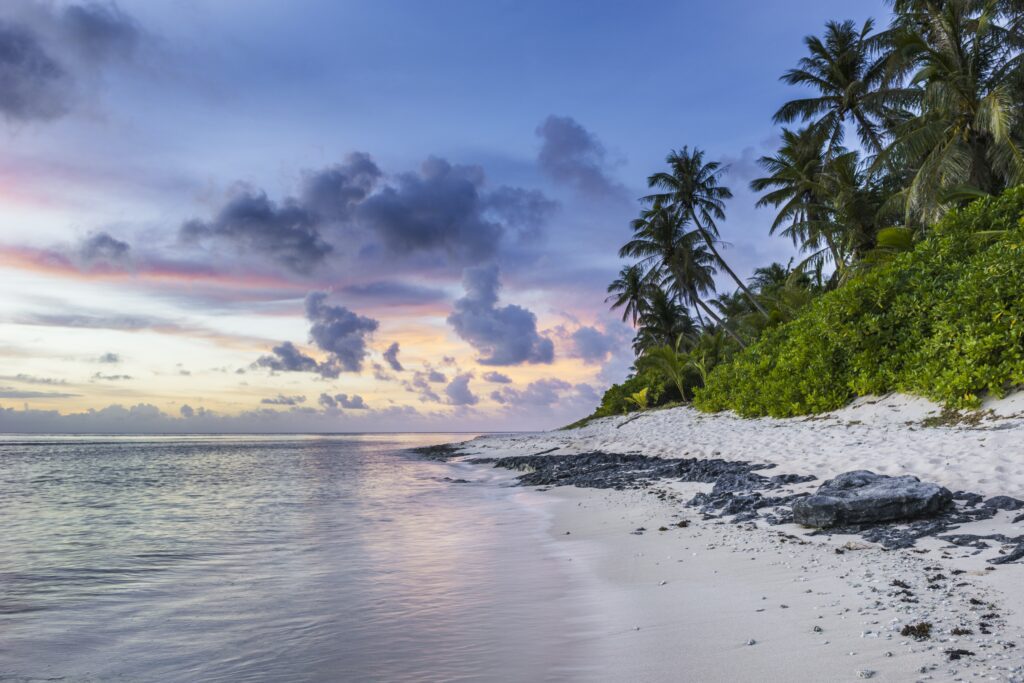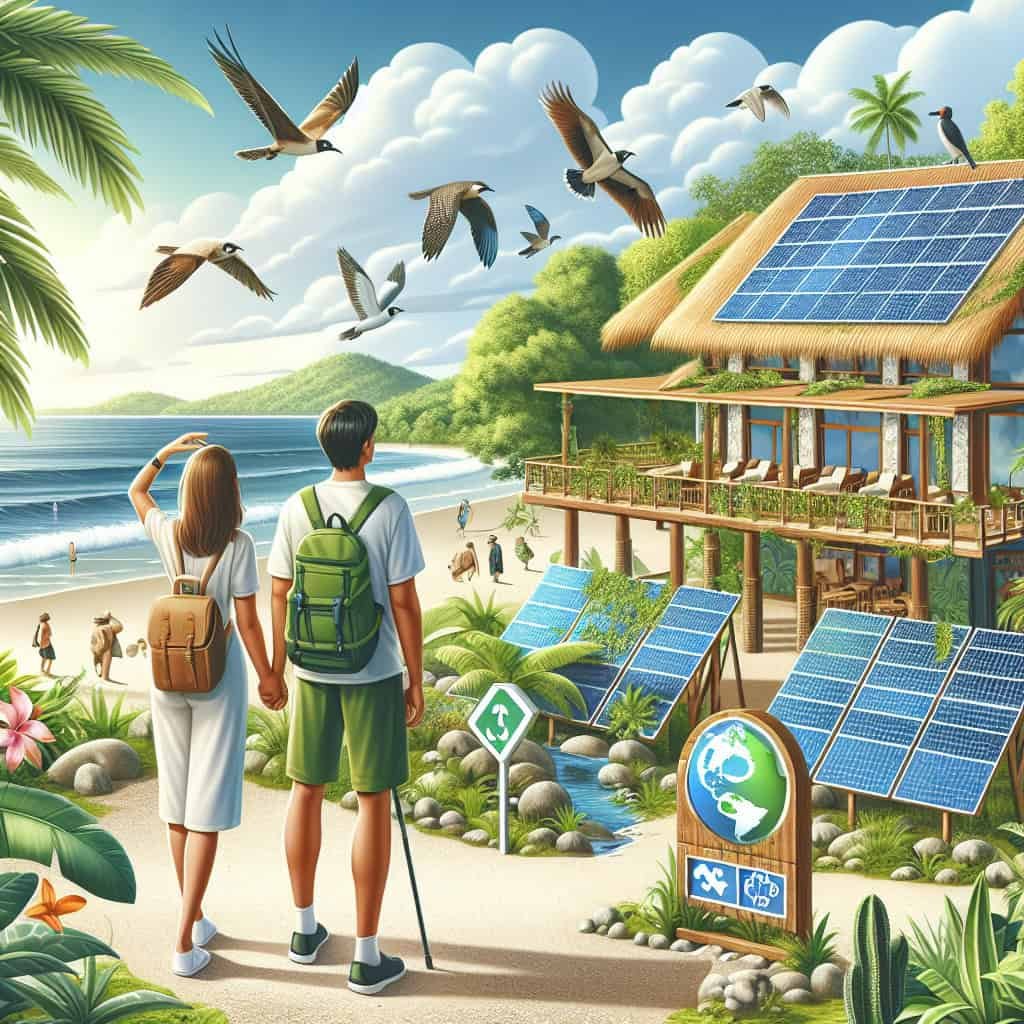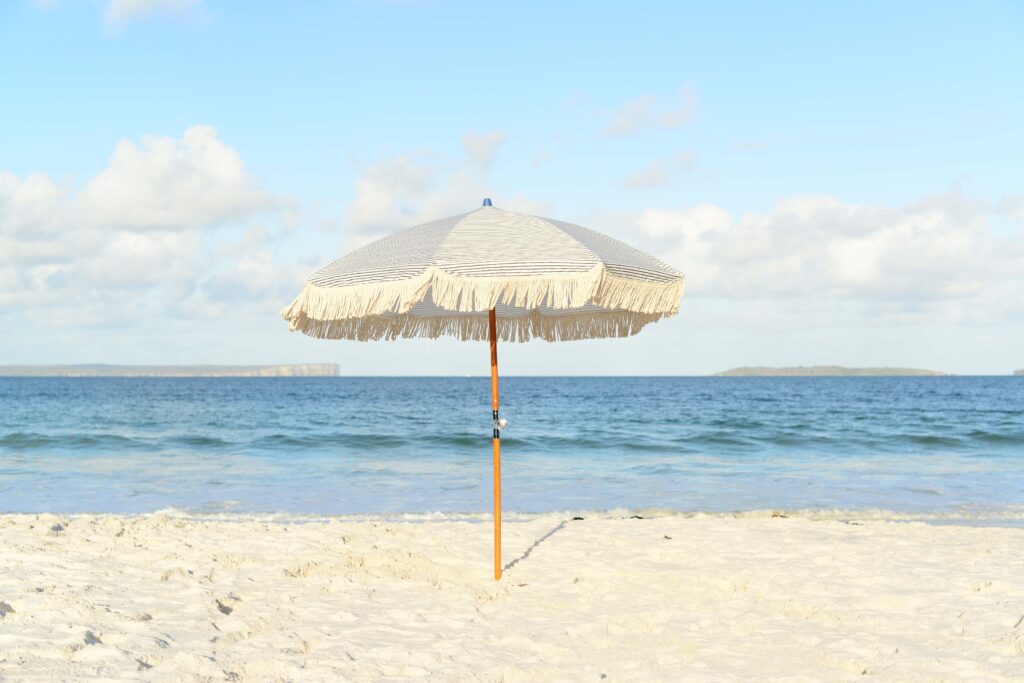Have you been dreaming of a beach vacation in Nicaragua but are concerned about the impact on the environment? Look no further! In this article, we will explore the availability of eco-friendly beach resorts in Nicaragua, so you can enjoy a guilt-free getaway surrounded by the breathtaking beauty of nature. From sustainable practices to eco-conscious amenities, we will uncover the top eco-friendly beach resorts in Nicaragua that prioritize both your comfort and the conservation of this stunning tropical paradise. Yes, there are several eco-friendly beach resorts in Nicaragua that promote sustainable tourism and environmental conservation. These resorts prioritize responsible practices and aim to minimize their ecological impact while providing tourists with an enjoyable and unique experience.

Overview of Nicaragua’s Tourism Industry
Nicaragua’s tourism industry plays a significant role in the country’s economy. It is one of the key economic sectors, contributing to job creation and revenue generation. The country offers a diverse range of attractions, including stunning beaches, tropical rainforests, colonial cities, and volcanoes, making it a popular destination for international travelers.
Popular Tourist Destinations in Nicaragua
Nicaragua boasts several popular tourist destinations that attract visitors from across the globe. Some of these include the colonial city of Granada, known for its vibrant culture and beautifully preserved architecture. Another must-visit destination is the volcanic island of Ometepe, located in Lake Nicaragua, which offers visitors breathtaking natural beauty and the opportunity to explore unique wildlife.
The Pacific coast is home to stunning beaches such as San Juan del Sur and Corn Island. These areas are renowned for their crystal-clear waters, world-class surfing spots, and vibrant marine life, making them ideal for beach lovers and water sports enthusiasts.
Growing Interest in Eco-friendly Travel
In recent years, there has been a growing interest in eco-friendly travel among tourists worldwide. Travelers are seeking destinations and accommodations that prioritize sustainability and minimize the negative impact on the environment. This trend has prompted the development of eco-friendly resorts in Nicaragua that focus on preserving the country’s natural resources while offering a comfortable and enjoyable stay for visitors.
Importance of Eco-friendly Resorts
Eco-friendly resorts play a crucial role in sustainable tourism. By adopting responsible practices, these resorts contribute to the preservation of Nicaragua’s pristine natural landscapes, protecting them for future generations to enjoy. Additionally, these resorts support local communities by providing job opportunities and investing in education, healthcare, and infrastructure development.

Sustainable Tourism and Its Benefits
Sustainable tourism refers to an approach that aims to minimize the negative impacts of tourism on the environment, society, and culture while maximizing the positive contributions. Eco-friendly resorts play a vital role in sustainable tourism by implementing practices that conserve natural resources, reduce waste generation, and support the local community.
By adopting sustainable tourism practices, eco-friendly resorts contribute to environmental conservation, promote cultural preservation, and create economic opportunities for local communities. This approach ensures that future generations can continue to experience the beauty and cultural richness of Nicaragua.
Preserving Nicaragua’s Natural Resources
Nicaragua is blessed with an abundance of natural resources, including lush forests, pristine beaches, and diverse wildlife. Eco-friendly resorts recognize the importance of preserving these resources and strive to minimize their impact on the environment.
Through measures such as responsible waste management, energy-efficient infrastructure, and water conservation initiatives, these resorts actively contribute to preserving Nicaragua’s natural resources. By choosing eco-friendly accommodations, you can enjoy the country’s natural beauty while making a positive impact on its conservation.

Responsible Practices in the Tourism Industry
Responsible practices in the tourism industry encompass various aspects, including waste management, energy conservation, and minimizing ecological impact.
Eco-friendly resorts implement efficient waste management systems, such as recycling and composting, to reduce their carbon footprint. They also strive to use renewable energy sources, such as solar or wind power, to reduce reliance on non-renewable resources.
These resorts actively engage in nature conservation activities, such as reforestation efforts and wildlife protection programs. By integrating these responsible practices into their operations, eco-friendly resorts ensure that tourism has a minimal impact on the natural environment.
Factors to Consider in Eco-friendly Resorts
When choosing an eco-friendly resort in Nicaragua, there are several factors to consider to ensure that the property aligns with sustainable practices. These factors include energy-efficient infrastructure, water conservation measures, the use of renewable resources, minimal ecological impact, and local community involvement.

Energy-efficient Infrastructure
Eco-friendly resorts prioritize energy efficiency by utilizing technologies such as energy-saving lighting, smart temperature control systems, and insulation to minimize energy consumption. These measures not only reduce the resort’s environmental impact but also contribute to cost savings and enhance the overall guest experience.
Water Conservation Measures
Water scarcity is a global concern, and it is vital for eco-friendly resorts to implement water conservation measures. These measures may include installing low-flow fixtures, implementing rainwater harvesting systems, and educating guests on responsible water use. By conserving water, these resorts ensure the sustainable use of this precious resource and contribute to the overall preservation of Nicaragua’s ecosystems.

Use of Renewable Resources
Eco-friendly resorts prioritize the use of renewable resources to reduce their reliance on non-renewable sources. This may include utilizing solar panels to generate electricity, using sustainable building materials, and incorporating eco-friendly practices in their day-to-day operations. By embracing renewable resources, these resorts contribute to the preservation of the environment and promote sustainable living.
Minimal Ecological Impact
When choosing an eco-friendly resort, it is crucial to consider its ecological impact. Look for properties that have minimal impact on surrounding ecosystems through responsible waste management, pollution prevention measures, and preservation of natural habitats. By selecting a resort with a low ecological footprint, you can minimize your own impact while enjoying the beauty of Nicaragua’s natural landscapes.
Local Community Involvement
Eco-friendly resorts recognize the importance of engaging with and supporting local communities. Look for resorts that provide employment opportunities for local residents, invest in local infrastructure and services, and support education and healthcare initiatives. By choosing a resort that prioritizes community development, you can contribute to the socio-economic well-being of the region while enjoying your vacation.
Sample Eco-friendly Beach Resorts in Nicaragua
Nicaragua offers several eco-friendly beach resorts that embody the principles of sustainability. These resorts prioritize responsible practices while providing guests with a memorable and enjoyable experience.
Resort A: Sustainable Practices and Amenities
Resort A is a standout example of sustainability in Nicaragua. Through efficient waste management systems, the resort minimizes waste generation and promotes recycling and composting. The resort also utilizes renewable energy sources, such as solar power, to reduce its carbon footprint and decrease reliance on fossil fuels.
The landscaping at Resort A is done using native plants and promotes biodiversity conservation. Guests can engage in nature conservation activities, such as tree planting and beach cleanups, to actively contribute to preserving Nicaragua’s natural beauty.
Resort B: Eco-conscious Architectural Design
Resort B exemplifies eco-conscious architectural design. The resort utilizes recycled and locally sourced materials in its construction to minimize the use of non-renewable resources and reduce waste generation.
The design of Resort B seamlessly integrates with the natural surroundings, allowing guests to feel connected with nature. Passive cooling and lighting techniques are employed to reduce energy consumption, while green roofs and rainwater harvesting systems help conserve water resources.
Resort C: Organic and Locally Sourced Cuisine
At Resort C, guests can indulge in organic and locally sourced cuisine, contributing to sustainable food practices. The resort follows a farm-to-table concept, sourcing ingredients from nearby farmers and fishermen. This approach supports local businesses while reducing food miles and promoting sustainable cooking practices.
Resort C also focuses on reducing food waste and packaging to minimize its environmental impact. By choosing this resort, you can enjoy delicious meals while supporting sustainable food systems.
Resort D: Environmental Education Programs
Resort D stands out for its commitment to environmental education. The resort offers workshops and guided tours on local ecology, educating guests about the importance of conservation and responsible travel.
Guests can actively participate in conservation projects and engage with environmental organizations partnering with the resort. Resort D’s environmental education programs foster a deeper understanding of Nicaragua’s natural resources and instill a sense of responsibility towards their protection.
Resort E: Community Development Initiatives
Resort E emphasizes community development as part of its sustainability efforts. The resort provides employment opportunities for local residents, contributing to the economic well-being of the community.
Additionally, Resort E invests in local infrastructure, services, and conservation initiatives, helping preserve cultural heritage and supporting education and healthcare programs. By choosing this resort, you can directly contribute to the socio-economic development of the local community.
Other Eco-friendly Options in Nicaragua
Apart from the eco-friendly beach resorts mentioned above, Nicaragua offers additional sustainable accommodation options for environmentally conscious travelers.
Eco-lodges located in nature reserves provide guests with a unique opportunity to immerse themselves in the country’s stunning natural landscapes while actively contributing to their preservation. These eco-lodges prioritize responsible practices, such as energy and water conservation, waste management, and the protection of wildlife habitats.
Beachside campgrounds in Nicaragua also offer sustainable practices, providing guests with a back-to-nature experience. These campgrounds often implement eco-friendly measures, such as composting toilets, renewable energy sources, and low-impact development techniques.
For those interested in engaging with local communities, community-based tourism initiatives provide an authentic and immersive travel experience. These initiatives allow visitors to directly interact with locals, learn about their culture, and support community-led development projects.
Volunteer opportunities are also available in conservation projects throughout Nicaragua. These projects focus on protecting and preserving the country’s natural resources and allow volunteers to actively contribute to environmental conservation efforts.
In conclusion, Nicaragua offers a range of eco-friendly beach resorts and sustainable accommodation options that prioritize responsible practices and contribute to the preservation of the country’s natural beauty. By choosing to stay at these eco-friendly resorts and engaging in sustainable tourism practices, you can enjoy a memorable vacation while making a positive impact on the environment and local communities.
